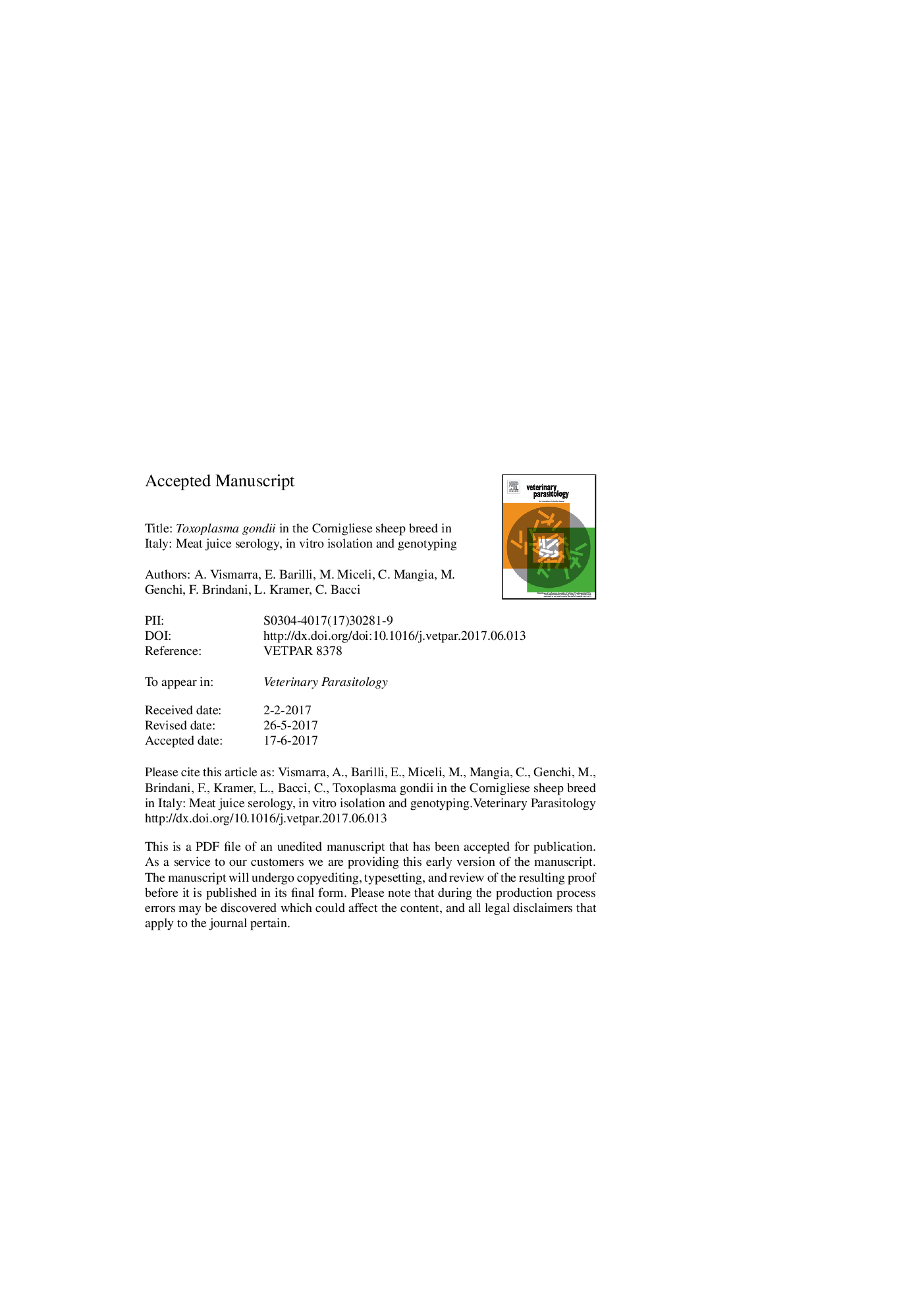| Article ID | Journal | Published Year | Pages | File Type |
|---|---|---|---|---|
| 5545618 | Veterinary Parasitology | 2017 | 17 Pages |
Abstract
Twenty-one hearts were collected at slaughter. Meat juice serology was carried out on all samples, while eleven hearts with the highest antibody titres were subjected to acid-peptic digestion and seeding onto Vero cells. DNA was extracted at three different time points following seeding. PCR-positive samples were then genotyped by PCR-RFLP. All the meat juice samples were positive for IgG antibodies against p30 protein of T. gondii. Five of the 11 samples, seeded onto Vero cells, were positive in PCR made on DNA extracted after 21Â days of culture and the PCR-RFLP revealed a Type-II or Type II variant profile at 9/10 loci. Two out of five samples showed an increase in terms of parasite growth by comparing the Cq values at three different time points. To the authors' knowledge, this is the first report of in vitro cultivation of T. gondii from muscle tissue of naturally-infected sheep. In vitro assays may be a promising alternative to bioassays and further studies are necessary in order to improve assay performance and to identify possible early markers of parasite proliferation.
Keywords
Related Topics
Life Sciences
Agricultural and Biological Sciences
Animal Science and Zoology
Authors
A. Vismarra, E. Barilli, M. Miceli, C. Mangia, M. Genchi, F. Brindani, L. Kramer, C. Bacci,
